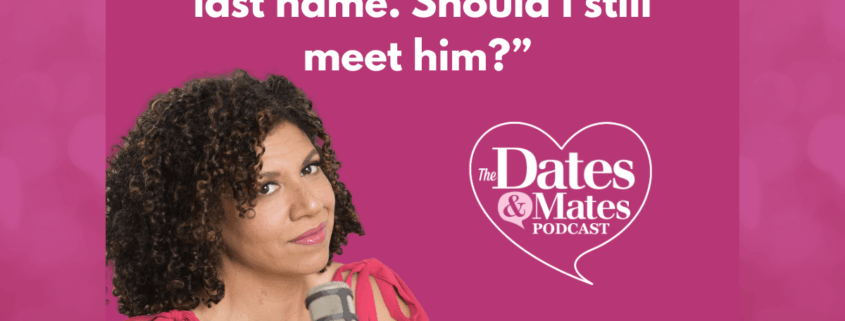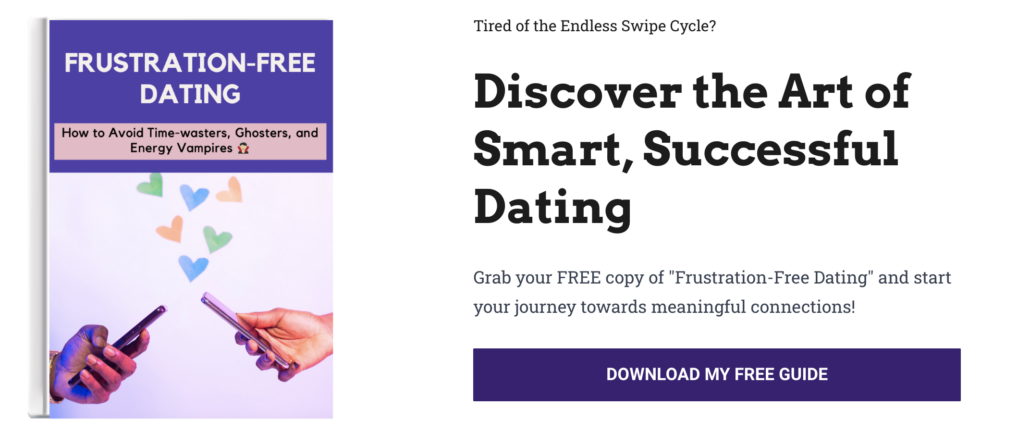Dating App Red Flags You Shouldn’t Ignore
Why “Mysterious” Often Means “Information Hidden”
What does it really mean to trust someone you’ve never met? And why does your gut feeling matter more than good morning texts?
There’s way more casual digital communication happening now. We’re texting good morning and goodnight to literal strangers. We’re building emotional connections before we’ve even shaken hands. And while much of dating is the same as it was 15 years ago, a few things are different. The stakes are higher. The risks are bigger.
This week, a listener named Jada wrote in with a situation so many are navigating:
“I matched with this guy on Hinge two weeks ago, and the chemistry is amazing. He’s been sending good morning and goodnight texts, asking about my day. But every time I ask where he works, what neighborhood he lives in, or even his last name, he gets vague and says he likes to stay mysterious. My friend says I should know his last name before meeting him. Is that reasonable? How much should I actually know about someone before a first date?”
We’ve been led to believe that the mystery keeps things alive. That asking too many questions or wanting transparency means we’re paranoid, controlling, uptight. That real trust means not verifying who someone actually is.
But here’s what’s really happening: Romance scams have victims losing more than $1.3 billion annually. That’s more than double what we saw before the dating app boom in 2020. The people this is happening to aren’t naive or desperate. They’re hopeful. They’re connecting with someone who feels genuinely real.
It’s about learning what red flags look like in the early stages, how to balance openness with common sense, and understanding that trusting your instincts doesn’t make you paranoid. It makes you smart.
This goes deeper than one match: Can we advocate for what we need without being made to feel like we’re the problem?
(06:00) Give Him the Benefit of the Doubt, But Also Verify
Maybe he’s been burned before. Maybe he’s been manipulated by someone who took advantage of him. Maybe he has a high-profile job, and the second someone figures out how much money he makes, they try to exploit it. Maybe he’s genuinely just been cautious because he’s thinking first of protecting himself.
We can give him the benefit of the doubt and still require information. Those two things aren’t opposites.
Wanting basic information doesn’t make you suspicious
- It makes you smart
- It makes you someone who respects yourself enough to verify
- It makes you someone who (hopefully) won’t end up in a Netflix documentary
But here’s what matters: you need to know more about him before you go offline. This is for your own peace of mind.
Because how are you going to show up to a date feeling ready to connect if you’ve got this thing in the back of your mind asking, “What is he hiding from me?”
(08:00) The Three Searches That Change Everything
Before you meet anyone in person, gather what you can. Ask for his phone number or email. Then run these searches.
1. PeopleFinders – A quick search on my go-to source PeopleFinders, using their name, phone number, or email, could reveal their address, profession, marital status, financial woes, and criminal record. It’s all publicly accessible.
2. LinkedIn – If they work in any professional field, they likely have a profile. Compare what they told you with what’s listed there. Check recommendations from colleagues. Look for graduation years and employment history. Inconsistencies matter.
3. Reverse Image Search – Save one of their profile pictures and search it on Google Images. Sometimes you’ll find old dating profiles, Facebook accounts, Instagrams (or Finstagrams), maybe even wedding photos, or completely different names.
If something doesn’t match what they told you, do not explain it away.
(12:00) When the Stories Don’t Add Up
This is where most people mess up: They find conflicting information, and then they rationalize it.
“But I really feel something with this person.”
“Maybe there’s a good explanation.”
“I’ll just ask him about it.”
Don’t do that. Ninety-nine times out of a hundred, discrepancies mean they’re either a catfish, a scammer, or both.
Either way, do not pass go, abort mission!! No matter how connected you feel over text, no matter how many good morning texts you’ve exchanged, that’s not your person.
Your gut is giving you information worth listening to. Listen to it.
(14:00) You’re Not Paranoid for Wanting Peace of Mind
Let’s settle this once and for all: you are not doing anything wrong by wanting to feel secure before meeting someone face-to-face. It’s not paranoid. It’s not needy. It’s wise. It’s necessary. And I’ve been recommending this for over 15 years.
The way to practice safety is to do just enough research so that you have peace of mind before your date:
- Run PeopleFinders with their name, phone number, or email
- Check their LinkedIn profile for inconsistencies
- Do a reverse image search on their photos
- Schedule a phone call or FaceTime before you meet in person, keep it 15 to 20 minutes (it’s a lot harder to lie or keep stories straight in a real-time conversation than over text).
When you’ve set up this safety net, when you know who they actually are and you’ve heard their voice and verified the basics, you can show up to that date without all the worries and fears. You can just be yourself. You can focus on connecting rather than wondering whether this person is who he says he is. That’s the whole point.
(16:00) The Timeline That Actually Protects You
Once you’ve verified who they are, the hard part is done. Now it’s time to actually go on the date.
First Date Safety Checklist
- Keep that first meeting short. One hour to 90 minutes maximum.
- Meet him there, not a pick-up from your place or his.
- Tell a friend exactly where you’re going and share all his details.
- Bookend the date with somewhere you need to be after so you have a clean exit if something feels off.
- Meet them solo and leave solo.
This isn’t paranoia. This is you respecting yourself enough to protect your peace.
When you show up to that date knowing you’ve done your due diligence, knowing they’re real and verified, you can finally just be present. You can have a real conversation.
You can see if there’s actually chemistry in person instead of just on a screen. And if something feels off in the moment, you trust that too.
Being careful doesn’t mean you’re closed off.
It means you value yourself enough to make informed decisions. And that’s exactly the energy that will serve you best, not just on this date, but in all your relationships.
If you want that peace of mind before your next first date, head to PeopleFinders and try the three-day trial. Once you get in there, you’re going to be hooked. You’re going to be searching up every match you have (and probably some of your friends and neighbors, too)
Trust but Verify at PeopleFinders











